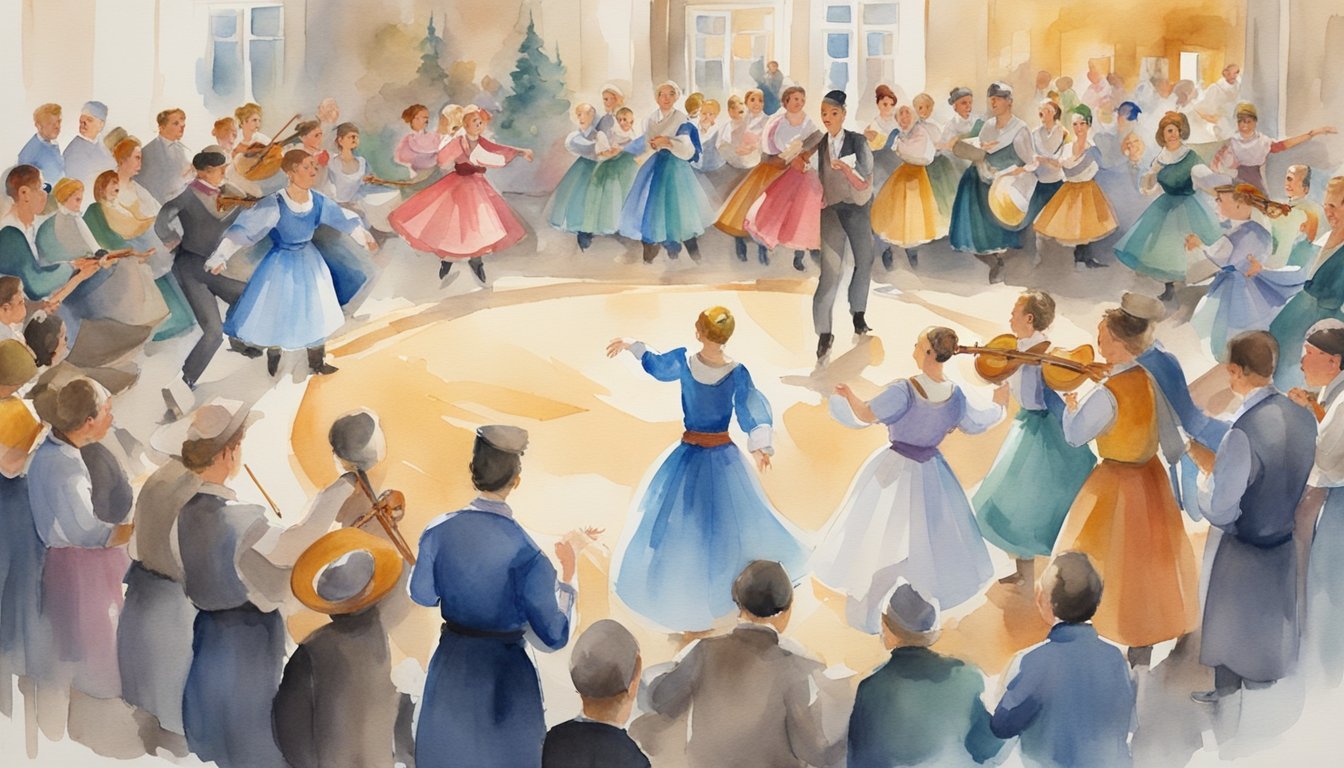Essence of Russian Culture
The rich tapestry of Russian culture is interwoven with its deep religious roots, enduring literary accomplishments, distinctive visual arts, and dynamic performing arts. These elements collectively shape the vibrant cultural scene of cities like Moscow and St. Petersburg.
Religion and Beliefs
In Russia, the Orthodox Church plays a central role, infused with traditions that stem from the earliest days of Christianity in the region. The Russian Orthodox Church, alongside a significant Muslim population, contributes to the multifaceted religious landscape of the country.
Literature and Intellectual Legacy
Russian literature is renowned worldwide, with figures like Leo Tolstoy and Mikhail Lermontov representing the country’s immense contribution to European thought. Poetry and prose have been used by Russian writers to explore complex themes and reflect upon the nation’s history and soul.
Visual Arts and Architecture
From the Tretyakov Gallery in Moscow, home to iconic Russian artworks, to the striking Byzantine style and uniquely Russian style found in architecture, Russian visual arts are a testament to the country’s creativity. Artists like Ivan Argunov and Ivan Shishkin have made significant contributions to the rich array of paintings and visual storytelling techniques.
Performing Arts
The world of Russian performing arts is perhaps best exemplified by the prestigious Bolshoi Ballet, which alongside classical music, captures the essence of Russia’s cultural sophistication. These performances, rooted deeply in the nation’s artistic traditions, continue to enthrall audiences at home and abroad.
Cultural Practices and Social Aspects

Russian culture is shaped by a rich tapestry of traditions that are deeply woven into the society, reflecting the country’s extensive history, religious practices, and social values. From vibrant holidays to indulgent cuisine, these cultural elements tell a story of resilient heritage and communal ties.
Traditions and Holidays
Russia’s calendar is punctured with a spectrum of traditional holidays and festivals, deeply rooted in history. Victory Day, celebrated on May 9, commemorates the Soviet Union’s victory over Nazi Germany with great pomp and military parades. International Women’s Day on March 8 is another important date, widely recognized and celebrated across the country. The Orthodox Church also plays a central role in Russian celebrations with events like Russian Orthodox Christmas on January 7 and Easter, which is observed with special services and traditions such as egg painting.
Family and Society
Family serves as the cornerstone of Russian social structure. Traditional values emphasize close-knit family ties and mutual support. Russian families often live together in multigenerational homes, sharing responsibilities and maintaining a strong sense of unity. Respect for elders is paramount, and family gatherings are common, serving as a time to enjoy company and partake in traditions.
Food and Cuisine
Russian cuisine is known for its hearty and flavorsome dishes, often showcasing local ingredients like mushrooms, honey, and pancakes known as blini. Iconic dishes such as borsch, a beetroot soup, and caviar are staples in Russian dining. Tea holds a significant place in social settings, frequently accompanied by sweets and pastries. Vodka, considered Russia’s national beverage, is traditionally consumed during meals and celebrations.
Leisure and Entertainment
Russian leisure activities span from intellectual pursuits like attending theater and cinema to engaging in sports, including hockey and figure skating. Popular culture and folklore remain an integral part of the arts, with fairy tales featuring iconic characters such as Baba Yaga and the famous Russian nesting dolls being recognized worldwide. Russian Culture: Facts, Customs & Traditions | Live Science provides a brief overview of these aspects, reflecting the nation’s love for a wide array of entertainment forms, which continue to thrive and evolve.

